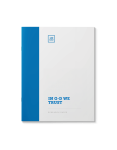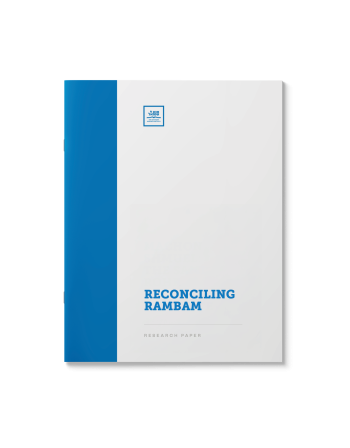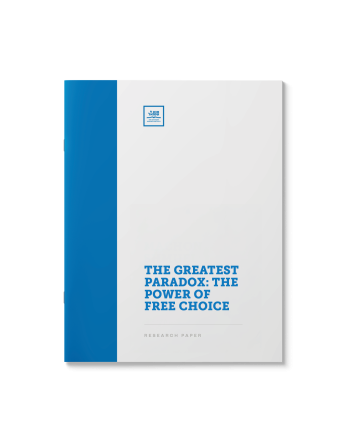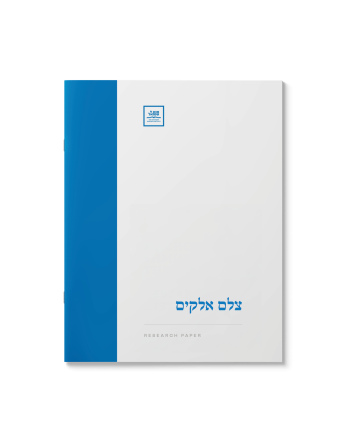In G-d we Trust
$75.00
Bitachon. It’s a powerful word; the absolute faith that G-d will always provide. From financial deals to health concerns, travel arrangements to hopes for the future – we trust that G-d only acts for the best. But how can we have Bitachon when we’re faced with a violent and dangerous world? When personal tragedy strikes, how can we continue to have faith? Where is the line drawn between Bitachon and folly? When one laughs in the face of nature, is he trusting in G-d or scorning G-d’s providence?
| Language | English |
|---|---|
| Paper Type | Research Paper |
| Pages | 84 |
Related Products
How did man come to possess the arts of the occult? What is the scope of their influence over reality? How were they transmitted and shared? Are they still in existence?
In what way are Kabbalistic practices to be distinguished from the occult? Our tradition tells of sages who used the secrets of Kabbalah to manipulate the powers of creation. Does this fall under the same rubric?
Related: Bones and Broomsticks: Sorcery in the Torah Part I
The Rambam is known as the “Great Eagle” of Torah scholarship because of his incisive logic, brilliant analysis, masterful organization and a host of other attributes. But as inseparable components of Torah, synthesizing the halachic teachings of the Mishneh Torah and the philosophical positions of the Moreh Nevuchim, can be perplexing.
We present a review of the unique approach of the Lubavitcher Rebbe to the discrepancies between some of Rambam’s philosophical writings and traditional Halachic thinking. The Rebbe presents a coherent profile of a Rambam you may have not yet met.
The belief that the world is created and sustained by G-d at every moment is commonplace. Recently some have challenged the assumption that this is the classical understanding of mainstream Jewry. Is he correct?
The
Torah contains instances where G-d appears to have reconsidered His decision, often in response
to human action. How can an eternal G-d be subject to change? Does that mean
the earlier decision was wrong? Is G-d’s word not final?
“If you are righteous, what do you give Him?” (Job 35:7)
It is axiomatic that mortal actions are completely insignificant to an infinite creator. Yet the Torah provides examples of where human actions set off a chain reaction throughout the cosmos, affecting the supernal realms or reality. What are some of these examples, and how should they be understood?
(Hebrew)
מעיקרי האמונה הוא החיוב להאמין שהקב”ה מושלל הוא מגשם וציור גופני. אך האומנם זאת היא הדיעה המוסכמת אצל גדולי ישראל לדורותיהם? והאם ביכולתו ית׳ הבלתי בעל גבול להתלבש גם בדמות גופני? על שלילת הגשמות והנמנעות אצלו ית׳ בספרות החקירה והחסידות.
If an omniscient G-d already knows what our future holds,
how is it possible to have free will? Known as the clash of yediah and
bechirah, this paradox has gripped scholars for millennia. This paper explores
the ongoing debate.
Men have forever clung to non-rational practices to ensure their safety and success. But the Torah requires faith in G-d and avoidance of divination and the like. Where is the line between prohibited and permissible divinations or superstitions? Does a Torah-true lifestyle include its own Omens, good signs and practices which are permitted and even encouraged? What is the background of many of our more well-known Segulos?
Related: It’s Written in the Stars: The Jewish Approach to Astrology, Zodiac and the Horoscopes
and Bones and Broomsticks: Sorcery in the Torah
כי בצלם אלקים עשה את האדם. האומנם? והרי אינו שייך ציור גופני אצל הקב״ה ח״ו? להלן חקר ועיון תמציתי משלל הפירושים שנאמרו בזה על ידי מפרשי המקרא, הוגי מחשבת ישראל, ומאורי הקבלה והחסידות.
How can we reconcile the fact that the length of a person’s life is predetermined by G-d and those behaviors that can shorten one’s life? Do we have any control over life expectancy? How much significance ought one give to medical intervention in terms of lengthening life?
Accustomed as we are to the world’s natural order, our notion of sorcery and other occult arts is accompanied by some level of fascination and intrigue.
How does the Torah explain the mechanisms used to achieve divination and witchcraft? More importantly, how do we reconcile the existence of evil forces that are capable of inflicting harm on humanity that was not ordained by Heaven?
Finally, how does one attain immunity against ominous spiritual realities?
“Why do the wicked prosper?” (Jeremiah12:1) This question has troubled the faithful from the times of Job and Jeremiah until today. Ought our faith in an unknowable G-d be weakened when witnessing the prosperity of the wicked? A smorgasbord of classic approaches.
(Hebrew)




![Bones and Broomsticks: Sorcery in the Torah Part II [New!]](https://catalog.myjli.com/wp-content/uploads/2025/05/SAMSBAB-350x448.png)










